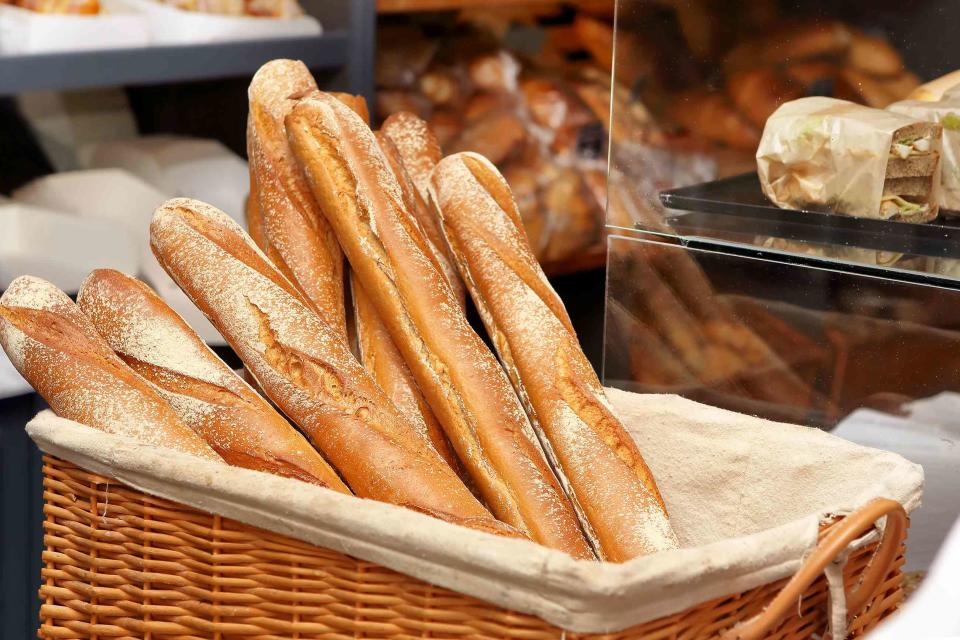The French Baguette Has Received UNESCO Protection — Here's What That Means
- Oops!Something went wrong.Please try again later.
The country's iconic bread is officially part of the "intangible cultural heritage of humanity."

Getty Images
In February 2021, France's then-Minister of Culture, Roselyne Bachelot, had the unenviable task of determining which of three national symbols was best worthy of being added to loftily named UNESCO's Intangible Cultural Heritage of Humanity list. Bachelot had to choose between Paris' gray zinc rooftops, the Biou d'Arbois wine festival, and the humble but oh-so-French baguette bread.
"It would be a good thing to protect our baguettes, our know-how," baker Jean-Yves Boullier told AFP at the time. "At least let them recognize the French baguette as a unique product that is typically French, and something other countries can't make."
Bachelot eventually submitted the baguette to French president Emmanuel Macron for his OK, which he enthusiastically gave. (Macron described the country's signature bread as "250 grams of magic and perfection in our daily lives.”) And after waiting for well over a year, UNESCO agreed with that assessment. The "Artisanal know-how and culture of baguette bread" has officially been added to its Cultural Heritage list.
:8 French Sandwiches to Eat Before You Die
"The traditional production process entails weighing and mixing the ingredients, kneading, fermentation, dividing, relaxing, manually shaping, second fermentation, marking the dough with shallow cuts (the baker's signature) and baking," UNESCO wrote. "Unlike other loaves, the baguette is made with only four ingredients (flour, water, salt and leaven and/or yeast) from which each baker obtains a unique product."
The baguette "celebrates the French way of life," UNESCO Director-General Audrey Azoulay said. "The baguette is a daily ritual, a structuring element of the meal, synonymous with sharing and conviviality," she added. "It is important that these skills and social habits continue to exist in the future."
Just how ingrained is the baguette into the French "way of life?" The Associated Press pointed to the nation's "Bread Observatory" for proof, which reported that 320 baguettes are sold every second in France, meaning the country consumes around 10 million perfectly crunchy baguettes each year.
After UNESCO announced this year's list — which also included North Korea's handmade naengmyeon noodles, Maghreb's harissa chili pepper paste, and Serbian plum brandy — the French government announced it would soon launch "Open Bakehouse Day" to celebrate the newly recognized bread. (Although, let's be honest, literally no one needs an excuse to eat a freshly baked baguette. Or even an impulse-buy baguette from the closest Carrefour.)
"It is a recognition for the community of artisanal bakers and patisserie chefs," Dominique Anract, the president of French bakery organization Confédération Nationale de la Boulangerie-Pâtisserie Française said in a statement. "The baguette is flour, water, salt, and yeast — and the savoir-faire of the artisan."

